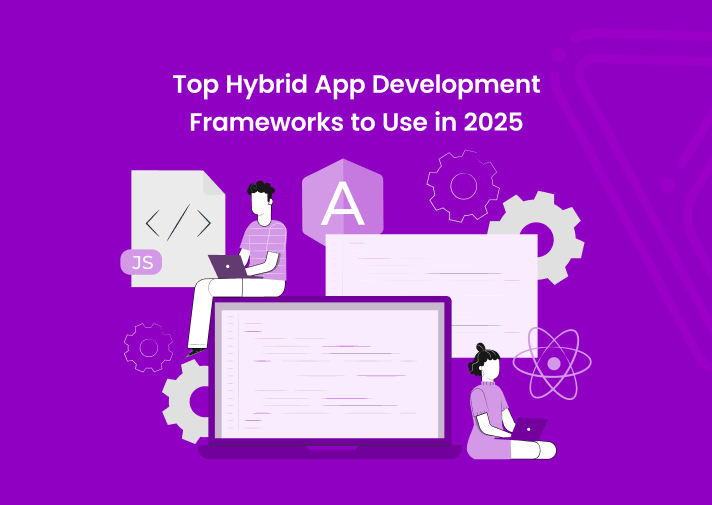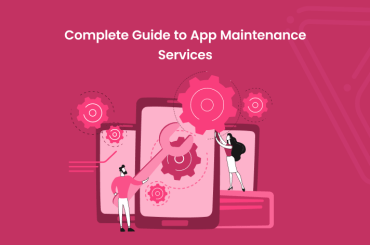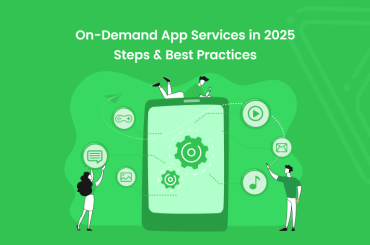Mobile apps are a must for businesses. But creating apps for multiple platforms can be expensive and time-consuming. That’s where a hybrid app development frameworks comes in. It helps save both time and money while delivering great performance.
If you’re looking to build efficient cross-platform apps, partnering with a reliable Mobile App Development Company in Chennai like Pyramidion can make a difference. Wondering which tools will shine in 2025? Let’s find out!
What is a Hybrid Mobile App?
A hybrid app is a mix of native and web technologies. It’s built with web tools like HTML, CSS, and JavaScript but runs inside a native app shell. This approach allows one app to work on multiple platforms like Android and iOS.
Key Features of Hybrid Mobile Apps
- Cross-Platform Compatibility: One codebase works for Android and iOS.
- Access to Native Features: Use device tools like GPS and cameras.
- Cost-Effectiveness: Save on development costs.
- Offline Access: Some features work without the internet.
- Faster Development: Build apps quickly.
- Scalability: Easy to add features as you grow.
Native vs Hybrid App
When choosing between Native vs Hybrid app, it’s essential to compare:
| Feature | Native Apps | Hybrid Apps |
|---|---|---|
| Performance | High | Moderate to high (depending on framework) |
| Cost | Expensive | Budget-friendly |
| Development Time | Longer | Faster |
| Code Reusability | None | High |
| Best Use Case | Complex, platform-specific apps | Cross-platform, budget apps |
Hybrid apps allow faster development with good performance, perfect for multi-platform needs.
What is a Hybrid Mobile App Development Frameworks?
A hybrid app development framework is a set of tools and libraries that simplify creating hybrid apps. These frameworks let developers write one codebase that works on multiple platforms, making the App Development Process faster and simpler.
Top Reasons to Choose Hybrid App Development in 2025
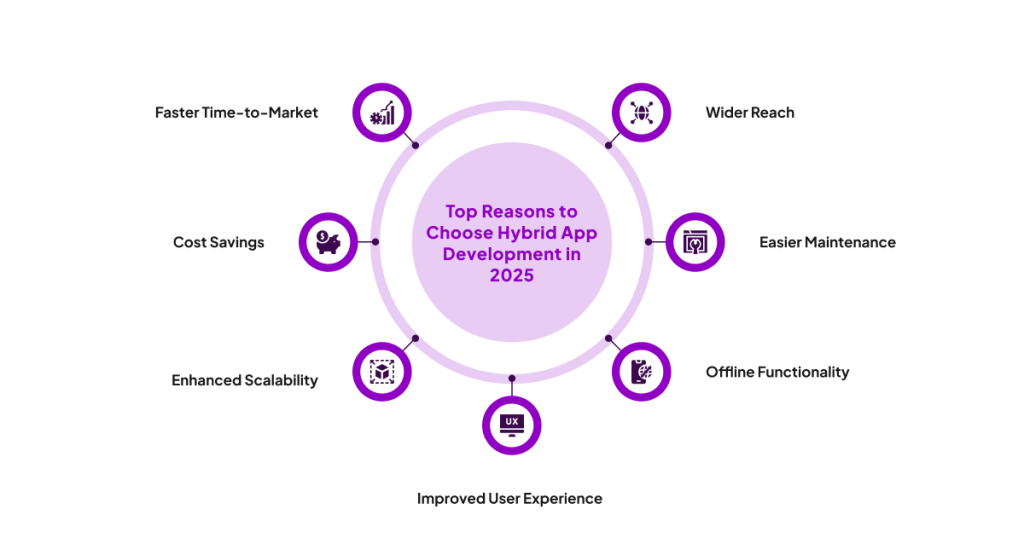
Hybrid App Development is gaining traction, and here’s why:
- Faster Time-to-Market: A single codebase shortens development cycles.
- Cost Savings: Reduce expenses by building one app for all platforms.
- Enhanced Scalability: Hybrid apps grow easily with business needs.
- Improved User Experience: Responsive designs adapt to various screen sizes.
- Offline Functionality: Offline features enhance usability in areas with poor connectivity.
- Easier Maintenance: Updates can be deployed across platforms simultaneously.
- Wider Reach: Launching apps on Android and iOS expands the user base.
Key Benefits of Opting for Hybrid Mobile Apps
- Hybrid Apps Keep You Ahead of Competitors
- Faster launches help you respond quickly to market changes.
- Simple updates ensure your app stays modern and relevant.
- Hybrid Apps Reduce Development Costs
- Building hybrid apps can save up to 40% compared to separate native apps.
- A single codebase lowers expenses for development and maintenance.
- Hybrid Apps Are Great for Quick Product Launches
- Reusable code speeds up the development process.
- Faster testing cycles allow you to release your app sooner.
- Hybrid Apps Improve User Experience
- Responsive designs make apps look great on any device.
- Flexibility allows developers to create smooth, user-friendly interfaces.
- Hybrid Apps Support Business Growth
- They scale easily to handle more users as your app grows.
- No need to rebuild hybrid apps and adapt to changing demands effortlessly.
How to Choose the Best Framework for Hybrid Mobile App Development
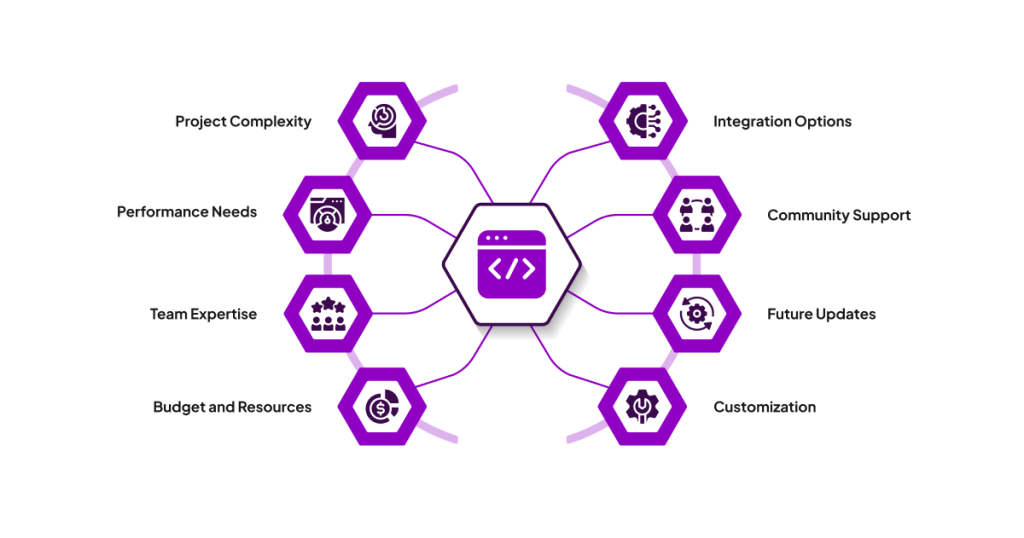
Picking the right hybrid app development framework is very important. Here’s how to choose:
- Project Complexity:
- For simple apps, use lightweight frameworks like Ionic.
- For complex apps, pick powerful ones like Flutter or React Native.
- For simple apps, use lightweight frameworks like Ionic.
- Performance Needs:
- If speed is a priority, choose a fast framework like React Native.
- If speed is a priority, choose a fast framework like React Native.
- Team Expertise:
- Select a framework your team already knows to make the process easier.
- Select a framework your team already knows to make the process easier.
- Budget and Resources:
- For smaller budgets, go for cost-effective options like Ionic or Onsen UI.
- For smaller budgets, go for cost-effective options like Ionic or Onsen UI.
- Integration Options:
- Make sure the framework supports important APIs and tools.
- Make sure the framework supports important APIs and tools.
- Community Support:
- Choose frameworks like Flutter and React Native with active developer communities.
- Choose frameworks like Flutter and React Native with active developer communities.
- Future Updates:
- Pick frameworks with regular updates and long-term support.
- Pick frameworks with regular updates and long-term support.
- Customization:
- Check if the framework allows you to create unique designs and features easily.
By keeping these factors in mind, you can choose the best framework for your app and your business goals!
Why You Should Use Frameworks for Mobile App Development
Frameworks streamline the development process and offer numerous advantages. Here’s why you should leverage them:
- Reduced Development Time: Frameworks come with pre-built libraries and tools that speed up app creation.
- Cross-Platform Compatibility: Build apps for multiple platforms with minimal code duplication.
- Consistent Performance: Frameworks optimize code to ensure smooth app functionality.
- Enhanced Security: Built-in tools provide secure coding practices.
- Scalability: Most frameworks are designed to handle growing app demands.
- Developer Productivity: Frameworks offer structured workflows, enabling developers to focus on unique features.
- Cost-Effective: Cut development costs with reusable components and pre-designed modules.
Using the right hybrid app development frameworks makes your app project faster, cheaper, and ready for the future!
About Developers and Frameworks: Understanding the Developer’s Role
Developers are the backbone of any mobile app project. Using the right hybrid app development frameworks, they:
- Create Apps for Multiple Platforms: Developers write one code that works on Android and iOS.
- Add Custom Features: Frameworks let developers make apps fit user needs.
- Improve Performance: Tools like React Native help make apps faster and smoother.
- Connect to APIs: Developers link apps to features like payment systems or chat tools.
- Stay Up-to-Date: Good developers keep up with the latest updates to make better apps.
By hiring skilled developers, you can build apps that users love and that stand out in the market.
Top Hybrid App Development Frameworks for 2025
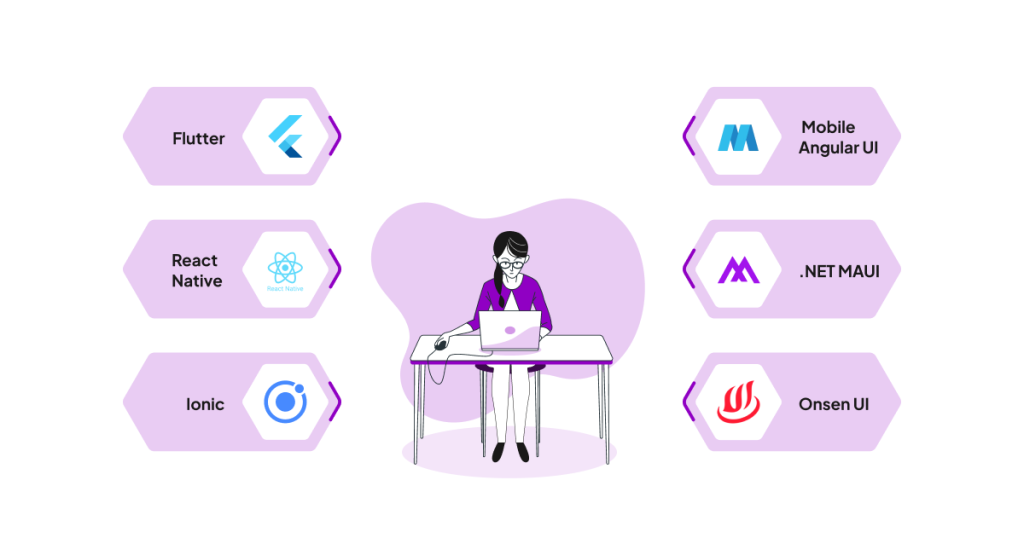
1. Flutter
Flutter, by Google, is popular for its flexibility and performance.
Key Features of the Flutter Framework
- Hot Reload for instant testing.
- Beautiful UI widgets.
- Support for both web and mobile.
Pros and Cons of Using Flutter for Hybrid App Development
| Pros | Cons |
|---|---|
| High performance due to Dart language | Larger app size compared to alternatives |
| Hot Reload enables real-time changes | Limited third-party libraries |
| Excellent community support | Steeper learning curve for beginners |
| Strong cross-platform consistency | May not be ideal for small apps |
Popular Apps Built with Flutter
- Google Ads: Manages advertising campaigns with intuitive dashboards.
- Alibaba: Provides a seamless shopping experience for millions of users.
2. React Native
Developed by Facebook, React Native is a favorite among developers.
Key Features of React Native Framework
- Reusable components.
- Strong community support.
- Seamless integration with native code.
Pros and Cons of React Native Hybrid Framework
| Pros | Cons |
|---|---|
| Easy to learn and implement | Slower performance for graphic-heavy apps |
| Strong third-party library ecosystem | Debugging can be challenging |
| Reusable components save time | Requires native module integration |
| Extensive community support | UI performance can vary between platforms |
Famous Apps Built with React Native
- Facebook: Known for its speed and scalability.
- Instagram: Combines simple UI with robust functionality.
3. Ionic
Ionic is a developer-friendly framework perfect for small to medium-sized apps.
Key Features of Ionic Framework
- Access to native device features via plugins.
- Built-in UI components.
Pros and Cons of Using Ionic for Hybrid Apps
| Pros | Cons |
|---|---|
| Budget-friendly development | Not ideal for performance-heavy apps |
| Pre-designed UI components available | Dependence on plugins for advanced features |
| Easy integration with Angular and React | May require additional testing for app performance |
| Active developer community | Limited offline capabilities |
Top Apps Developed Using Ionic
- Diesel App: A retail app offering smooth browsing and shopping.
- MarketWatch: Delivers financial news and market data.
4. Mobile Angular UI
Mobile Angular UI extends the AngularJS framework for mobile apps.
Key Features of Mobile Angular UI
- Uses Bootstrap for responsive designs.
- No dependency on jQuery.
Pros and Cons of Mobile Angular UI for App Development
| Pros | Cons |
|---|---|
| Lightweight and easy to implement | Smaller community compared to other frameworks |
| Responsive designs for better UX | Not suitable for high-performance apps |
| No jQuery dependencies | Lacks built-in tools for complex animations |
| Ideal for quick prototypes | Limited scalability options |
Popular Apps Built with Mobile Angular UI
- Mobile-optimized e-commerce portals that focus on speed and user engagement.
5. Onsen UI
Onsen UI is a highly versatile framework known for its simplicity.
Key Features of Onsen UI Framework
- Customizable UI components.
- Supports AngularJS, Vue.js, and React.
Pros and Cons of Onsen UI for Hybrid Apps
| Pros | Cons |
|---|---|
| Framework-agnostic and easy to learn | Smaller community for advanced support |
| Pre-designed UI components available | Limited resources for complex features |
| Quick prototyping for apps | May require additional testing for large apps |
| Great performance for simple apps | Not ideal for high-scale apps |
Best Apps Built with Onsen UI
- Monaca Tools: Enhance app development and deployment.
6. NET MAUI
NET MAUI (Multi-platform App UI) by Microsoft is great for enterprise apps.
Key Features of .NET MAUI Framework
- Single project structure.
- Integrates with Microsoft tools.
Pros and Cons of .NET MAUI for Mobile App Development
| Pros | Cons |
|---|---|
| Strong enterprise-grade support | Higher learning curve for developers |
| Single codebase for all platforms | Dependency on Microsoft ecosystem |
| Excellent tools for debugging | Limited community compared to Flutter or React Native |
| Ideal for large-scale apps | Longer development time for small apps |
Popular Apps Built with .NET MAUI
- Enterprise dashboards for project management and analytics.
Challenges of Choosing the Right Hybrid App Framework
While hybrid app development frameworks offer many benefits, choosing the right one can be challenging.
Common Challenges
- Feature Limitations: Some frameworks may lack advanced features needed for specific projects.
- Performance Trade-Offs: Not all frameworks deliver native-like performance.
- Learning Curve: Developers unfamiliar with certain frameworks may need additional training.
- Integration Issues: Frameworks might not support all APIs or third-party tools.
How to Overcome These Challenges
- Conduct Thorough Research: Understand your app’s requirements and shortlist frameworks accordingly.
- Consult Experts: Seek advice from experienced developers or agencies.
- Test Frameworks: Create prototypes to evaluate framework performance.
- Stay Future-Ready: Opt for frameworks with robust community support and regular updates.
Making informed decisions ensures your app development journey is smooth and efficient.
Cost of Using Different Hybrid Mobile App Frameworks
Knowing the App Development Cost of a hybrid app development framework helps you plan your budget well. It lets you make smart choices and spend your money wisely.
| Framework | Development Cost Range |
|---|---|
| Flutter | $20,000–$50,000 |
| React Native | $25,000–$60,000 |
| Ionic | $15,000–$40,000 |
| Mobile Angular UI | $10,000–$35,000 |
| Onsen UI | $10,000–$30,000 |

Conclusion
Choosing the right hybrid app development framework depends on your app’s needs and budget. Options like Flutter, React Native, and Ionic help you create apps that are affordable and easy to grow.
Want to get started? Pyramidion Solutions can help you pick the perfect framework for your project. Contact us to get started today!

As the Director of Business Development, I have provided top-notch IT solutions for over a decade for software development, mobile application development, and blockchain development. My main work and passion lie in contributing to the business’s success through knowledge, creativity, hard work, and strong organizational skills.

